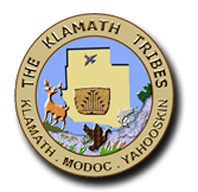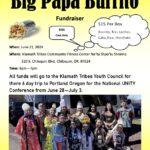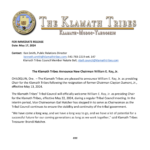Greetings everyone!
Today we will look at three verbs. Then we will go on to time elements and add these to our sentences. Then we will translate them. Whenever you make a sentence, it is a very good idea to translate them.
First verb: The 1st verb is one you will use a great deal. It is : hemkanga=say, speak, talk. _____________________________________________________________________.
Make a sentence in Klamath above. Be prepared to share it.
Who is doing the action? That is your subject. Are you speaking to someone? That is your object. Then the verb hemkanga. That is your sentence.
The next verb is: s-aba. It means: tell. Who is doing the action? That is your subject. Are you telling someone? That is your object. Then the verb s-aba. That is your sentence.
_______________________________________________________________________.
The third verb is: sidyayka. It means to be happy.
Who is happy? That is your subject. This verb does not need an object. Then the verb: sidyayka. That is your sentence.
__________________________________________________________.
Now we will add some time elements to the sentences we just made. Remember that they go best at the beginning of the sentence. When the time elements come at the beginning of the sentence, it is a warning to the person you are speaking to about “when” you are talking about.
ona-yesterday
gen waytas=today
mbosant=tomorrow or morning
welisht=just recently, a short time ago
ga-ak=long ago
It would be best to have a separate piece of paper to put these sentences on. Remember: the more times you make sentences , the more you will remember how to do it. We are aiming to be able to speak to each other, so each of us will need to make many, many sentences.





